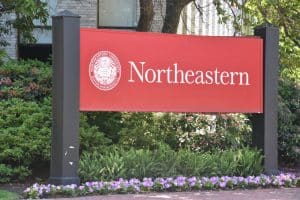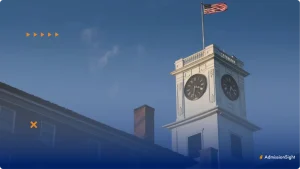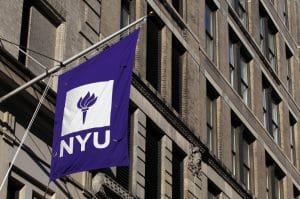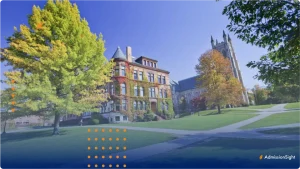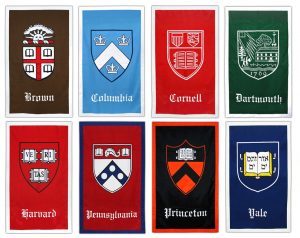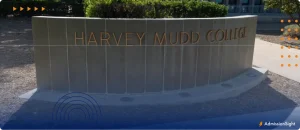Mock trials are made up to simulate a real trial experience. It gives students the chance to play a part in the justice system. Literally. They play different parts in the legal systems such as the jury, prosecution, plaintiff, and defense. Teachers can create a mock trial program werein students in a classroom or schools can participate in official tournaments. Popular mock trial organizations include the American Mock Trial Association (AMTA) and the Constitutional Rights Foundation (CRF).

There are different levels of mock trials. You’ll see everything from the do-it-yourself version with printed materials with the teacher and the classroom as participants to tournaments on a national level with awards. The requirements and rules will range based on the mock trial organization you choose to work with. Hate speaking in front of an audience? Mock trials give students a chance to practice their public speaking skills.
Teachers or schooling establishments might utilize a particular mock trial organization but they are all meant to get students to compete in both sides of the case, the prosecution/plaintiff, and the defense. Students also make up the jury, an integral key in the justice system. Your mock trial committee might even be chaired by representatives of your County Superior Court or your County Bar Association.
The AdmissionSight philosophy is to prepare you for the application admissions process. We know how hard it is to make it out there and we aim to give you that competitive edge to nail your college application. Applying for your college applications and writing essays requires hard work and motivation. If you can effectively prove your point in a mock trial court of law, you might be able to articulate yourself in your future endeavors:
– college application essays
– resumes
– personal statement
– essays for university classes
– emails with classmates or colleagues
Mock trial tournaments can be an asset to you in many ways. Learn from judges, lawyers, and other accomplished educators. We’ll explain the reasons why you might want to think about joining, how it can benefit your skills and potentially advance your career. Plus, it’s fun too. We’ll break down the difference between the American Mock Trial Association (AMTA) and the Constitutional Rights Foundation (CRF) – why you’d join one versus the other – and give you ideas on other mock trial options.
American Mock Trial Association (AMTA)
Founded by Dean Richard Calkins of Drake Law School in 1985, the American Mock Trial Association (AMTA) is geared for college students. Every season they host 32 regional tournaments, eight opening round championship tournaments, and then one final national championship tournament. Universities and colleges from all over the country gather together to compete in these tournaments. The tournaments are where the magic really happens! There are about 400 universities that participate and around 700 teams to be exact. Over 7000 undergraduate university students take part in the intercollegiate mock trial competitions every academic year. This is the peak high point for all college mock trial students.
Your university or college should already have a program running, but if they don’t you can contact AMTA’s New School Recruitment and Mentorship Committee. If you’re still in high school and want to join mock trials at an intercollegiate level, it helps to start early, especially if you’re writing your personal statement. We’ll give you some ideas on where to begin later in this post.
While AMTA acts as a baseline, each independent school tailors its mock trial course syllabus for themselves. There might be differing class attendance and preparation requirements, attire guidelines, tournament performance expectations from professors and team coaches, and assignments or examinations. The teacher assigns the roles to students, so that could entail the competition roles or the team and travel assignment roles.
The objective of a mock trial is to allow students to be part of a civil or criminal simulated trial. Students play scrimmages and tournaments, sometimes switching to roles so they can have a grasp of the different sides of the attorney roles. Students can act as the attorney and for the witness, depending on the teacher’s role assignments. Students might have to perform the following activities:
- a cross-examination
- act as a witness during the direct examination
- write a bio for a witness
- create an opening or closing statement.
The AMTA sponsors both regional and national-level competitions. The average team consists of somewhere between 6 to 10 students. Each team will compete twice, once as the plaintiff/prosecution, and then once as the defense for each tournament they participate in. A smaller team with six students will need to have every single student compete on both sides of the case whereas a team with more students has a bit more wiggle room on who they can place on which role.
Teams compete in four rounds during the regional competition: that’s two rounds for the plaintiff/prosecution and two rounds as the defense. The skill levels of teams will vary so don’t be intimidated if you feel inexperienced. This is an opportunity to grow and learn more about what it takes to be a lawyer working in the legal system. Students can potentially win individual awards that are given to the top attorneys and the top witnesses at each tournament. This is determined based on their performance on one side of the case. Mock trials give students hands-on experience on what it takes to conduct a trial.
Constitutional Rights Foundation (CRF)
The Constitutional Rights Foundation (CRF) is another mock trial organization but this one is more specific to California counties. It’s a nonprofit, community-based organization. The CRF began in 1980 and now it’s integrated into 36 counties throughout California. Each year the CRF creates a new mock trial to address important issues facing America’s youth. This kind of yearly update helps the organization stay relevant and top of mind with issues teenagers are interested in, rather than a dated case they might not be passionate about.
The case materials are all hypothetical and include the summary of the case law, witness statements, official exhibits, and simplified rules of evidence. There are over 8000 students throughout California who participate in the CRF mock trial program. You’ll find competitions from San Diego, Los Angeles, and other participating counties. While the AMTA is an intercollegiate program, the CRF organization is specifically for students in high school and middle school to compete at a county level. If you are from California and you are in sixth grade through 12th grade and want to dip your toe into the mock trial world, the CRF is the option for you.
Participants are able to interact and even be mentored by various judges and attorneys. Skilled attorneys provide a variety of roles in the mock trial program including acting as a team coach, scoring the tournament, and presiding over the trial themselves. Work on your networking skills and get to know established people in the legal field through CRF mock trials.
Other Mock Trial Organizations
No local mock trial chapter nearby? If you’re a California-based student and you don’t have a mock trial program near you, you just need a minimum of eight students to participate as well as a teacher to sponsor and oversee everything.
You’re not in college. You’re not based in California. Is there a mock trial option for you? Why yes, there is. The first option is to always ask your teacher. Bring it up in class or in an email to see if they can point you in the right direction or if there’s a chapter nearby. There is probably a designated mock trial association for your specific state. Case guidelines will differ based on the state and the organization. Always read through the guidelines so your team abides by the rules. Contact us if you need academic guidance.
Even elementary teachers can utilize a mock trial as a learning tool to understand more about the law, how to ask questions, and think critically. If you are a teacher or parent for younger students, think about having a mock trial experience for your class. It doesn’t have to be an official mock trial through an organization with awards and national tournaments, you can have fun in the classroom and find something online that works.
Why You Should Join
Whether you want to be a lawyer or not, the mock trial program is an incredible learning tool. Representatives of your County Superior Court or your County Bar Association could be part of the mock trial committee, so you can discover what it takes to be successful directly from high-performing mentors.
Students can garner an understanding of the legal system in the United States as they work through a trial with their own classmates. You interact with other students and improve your public speaking and communication skills. These types of skills are imperative in college and in a workforce atmosphere when you are working together as a team, writing essays, or chatting with peers. Being able to articulate yourself can prove beneficial for years to come. When is being coherent, not useful?
It’s not just Ivy League schools that have high standards, state schools, and community colleges are raising the bar all across the board. There are thousands of students applying every single semester. You don’t have to do it alone. We have a lot of experience working with students just like you who want to shine in their interviews, applications, essays, and beyond. AdmissionSight offers services such as interview preparation where we go over common interview questions and practice interview best practices. We’ll give you direct and constructive feedback so your personality shines through.
As one of the lawyers, you’re expected to prove your point effectively. This might include writing, editing, verbal communication as well as potentially speaking with clients, people who might not understand the logistics of the law. You’ll have to speak with conviction and compassion. Speaking in front of others will improve your presentation skills.
These programs aren’t only for intensive learning experiences. You become part of a group, a community. Your high school or local community might already have a mock trial program set up. Get the details on your local website or by contacting your own teacher. There are possible webinars, annual dinners, and fun experiences throughout the year. It’s not solely competitions and tournaments and stress. It’s not always a cutthroat experience with high stakes. You can have a bit of fun too.
Career Opportunities
Joining a mock trial is an ideal fit if you’d like to become a lawyer or pursue a career in the legal field. The time you spend preparing in your mock trials will help you feel more comfortable in front of the crowd as you approach the courtroom. The amount of hands-on experience is incomparable. Be mentored by some of that best and brightest judges, attorneys, and educators.
Legal careers:
- Lawyer
- Conflict of Interest Manager
- Paralegal
- Mediator
- Legal Nurse Consultant
- Trial Consultant
- Legal Secretary
- Litigation Support Professional
- Court Reporter
- Law Clerk
Obviously, mock trials are a great extracurricular activity for those interested in the legal field, but what other careers is it good for? Apply your skills and experiences to other fields such as political science, history, and sociology. Lawyers are important, but the jury is a vital part of the justice system. If you can listen to both sides of a story and balance everything in a just manner as part of the jury, your skills can be used as a journalist, a teacher, or whatever you set your mind to.
You’ll gain public speaking experience, the ability to listen, networking opportunities, and confidence that can be used in any job you take. These skills can be used throughout your time in university, throughout the workforce, and in your daily life. Maybe you don’t want to be a lawyer at the end of your mock trial experience, but at the very least, you’ll understand what it takes to become a lawyer and have respect for the United States Constitution and the legal system.
Conclusion
Mock trials allow students to be part of a simulated version of a civil or criminal trial. The most popular mock trial organizations are the American Mock Trial Association (AMTA) and the Constitutional Rights Foundation (CRF). AMTA is for college students. CRF is for students in grades six through 12 in California. Other institutions will vary based on where you live. Official organizations offer some benefits such as scholarships, awards, and national recognition.
You don’t have to pursue a law degree to participate in a mock trial. No matter your college major, it can provide you with benefits and skills to last a lifetime. Do you have more questions about the intensive college application process? Please feel free to reach out and contact us. Use our contact form to set up and free initial consultation. We have the highest acceptance rates in the industry as an Ivy League admissions consulting company. We’re here to help!


























